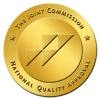Anxiety Disorder
Treatment for Anxiety Disorder at Eagle View Behavioral Health.
While anxiety disorders are extremely common, they often go undiagnosed or are minimized and dismissed as nerves or nevousness. At Eagle View, we approach all forms of anxiety holistically, taking each individual’s symptoms and experiences into consideration.
Our Acute Psychiatric Inpatient Program offers adolescents and adults short-term treatment for the five major types of anxiety disorders:
- Panic Disorder
- Generalized Anxiety Disorder (GAD)
- Post Traumatic Stress Disorder (PTSD)
- Obsessive-Compulsive Disorder (OCD)
- Social Phobia (or Social Anxiety Disorder)

What is Anxiety Disorder?
Although anxiety is a natural human emotion that can arise from daily stressors such as work challenges, important exams, or life-altering decisions, anxiety disorders are distinct and can have long-lasting effects that interfere with normal life.
Anxiety disorder refers to a group of mental health conditions that are characterized by persistent and excessive worry, fear, and nervousness. It is a broad term that encompasses several specific disorders, such as generalized anxiety disorder, panic disorder, social anxiety disorder, obsessive-compulsive disorder, and post-traumatic stress disorder.
Those who suffer from anxiety disorders are frequently overwhelmed by persistent worry or fear. These disorders may be linked to a malfunctioning brain region that regulates emotions, as prolonged anxiety has been shown to alter nerve cell communication between different areas of the brain. Some anxiety disorders can also modify brain structures responsible for emotions and memories, disrupting vital bodily systems. Anxiety disorders can affect people of all ages and have various causes, including genetic inheritance, environmental factors, or both.
Anxiety disorders affect millions of people of all ages and can significantly impact a person’s daily life, including work, relationships, and overall well-being.
What are the symptoms of Anxiety disorder?
Although occasional symptoms of anxiety are normal, anxiety disorders can manifest in various ways, and it is crucial to recognize the signs of prolonged or severe anxiety symptoms. Seeking assessment and treatment from a mental health professional is necessary to address and manage these symptoms effectively.
- Excessive worrying
- Imagining the worst-case scenarios in day-to-day activities
- Viewing non-threatening things as threatening
- Difficulty concentrating
- Shortness of breath and racing heartbeat
- Shaking and sweating
- Nausea and stomach issues, including vomiting or diarrhea
These symptoms aren’t exclusive to heroin use, but if your loved one has a history of substance abuse and you suspect heroin use, get them help before it’s too late. Your suspicions are likely correct.

When To Get Help for Anxiety Disorder
While occasional symptoms of anxiety are a normal part of life, if anxiety symptoms persist for an extended period or interfere with daily life, it may be time to seek professional help. Ask yourself a few questions like: Does my anxiety feel overwhelming or unmanageable? Am I experiencing intense fear or worry that interferes with daily activities? Am I avoiding places or situations due to anxiety? Am I having difficulty sleeping due to anxiety?
If you are experiencing any of these symptoms or feel like anxiety is interfering with your daily life, seeking professional help can be beneficial. The team at Eagle View will help assess your symptoms and develop a personalized treatment plan to help manage your anxiety and improve your overall well-being.
Treatment Options at Eagle View
At Eagle View Behavioral Health, we offer multiple treatment options for individuals with bipolar disorder. For more information on how we can help you get your symptoms under control, call us today. Our trained mental health professionals can provide you with a comprehensive clinical assessment and determine the best type of treatment.
Behavioral Effects of
Heroin Addiction
As the addiction to heroin progresses, a person commonly begins to show behavioral inconsistencies, including:
- Lying / Theft
- Substantial increases in sleeping
- Incoherent speech, rambling
- Lack of pride in personal hygiene and appearance
- Sudden distance from friends and family
- Borrowing money
- Extreme mood swings, manic behavior
- Emotional projection
Withdrawing From Heroin
The high of heroin is described as calm warmth spreading through the body. Users experience temporary feelings of happiness, contentment, and ease of any concerns.
But when the high wears off, the user will experience mild symptoms like irritability, anxiety, sweating, aching muscles, and insomnia. Then, if they don’t use again, they could start showing more severe symptoms like vomiting and intense muscle cramping.
Although withdrawal from heroin is not life-threatening, the effects can happen so quickly that an addict continues to use just to avoid “dopesickness.”
About Heroin Addiction Treatment
Sadly, the number of heroin-related deaths continues to rise. At Eagle View, we support and believe in every individual’s ability to turn their life around and heal from heroin addiction. The first step is admitting you have a problem. Then, Eagle View can help you start on the path to recovery.
We’ll walk with you through the difficult withdrawal process. We’ll prepare you for all that comes next in your ongoing recovery.
Your journey to sobriety can start today. Give us a call and save your life.
Health Risks From Heroin Use
There are many health risks associated with heroin abuse. Short-term risks include fatal overdose. Here are other potential risks:
- HIV/AIDS (intravenous use)
- Hepatitis C (intravenous use)
- Collapsed veins (intravenous use)
- Infection of the heart lining and valves
- Abscesses
- Cellulitis
- Liver Disease
- Pulmonary complications, including pneumonia
Some are from long-term use, but it only takes one dirty needle to contract HIV or Hepatitis C.

